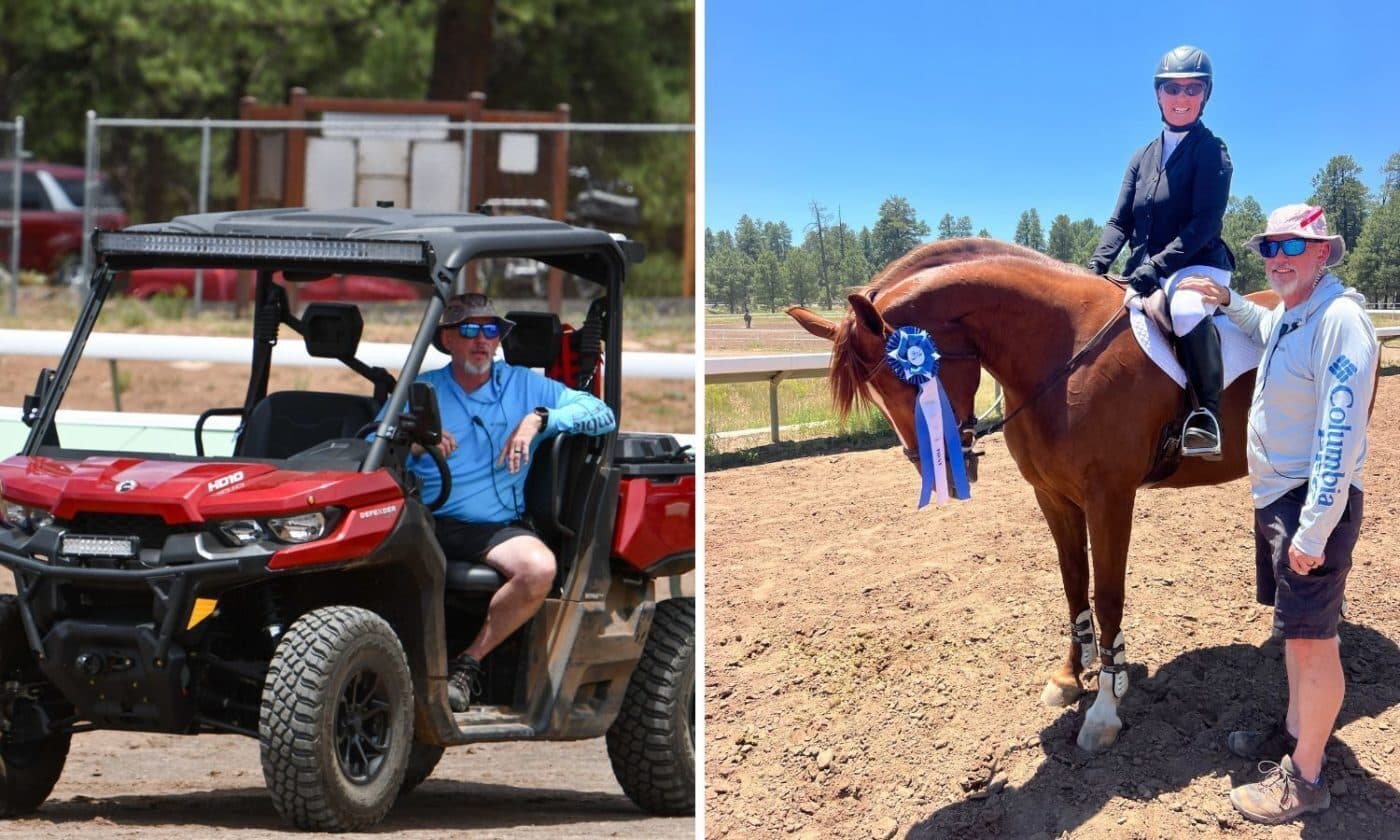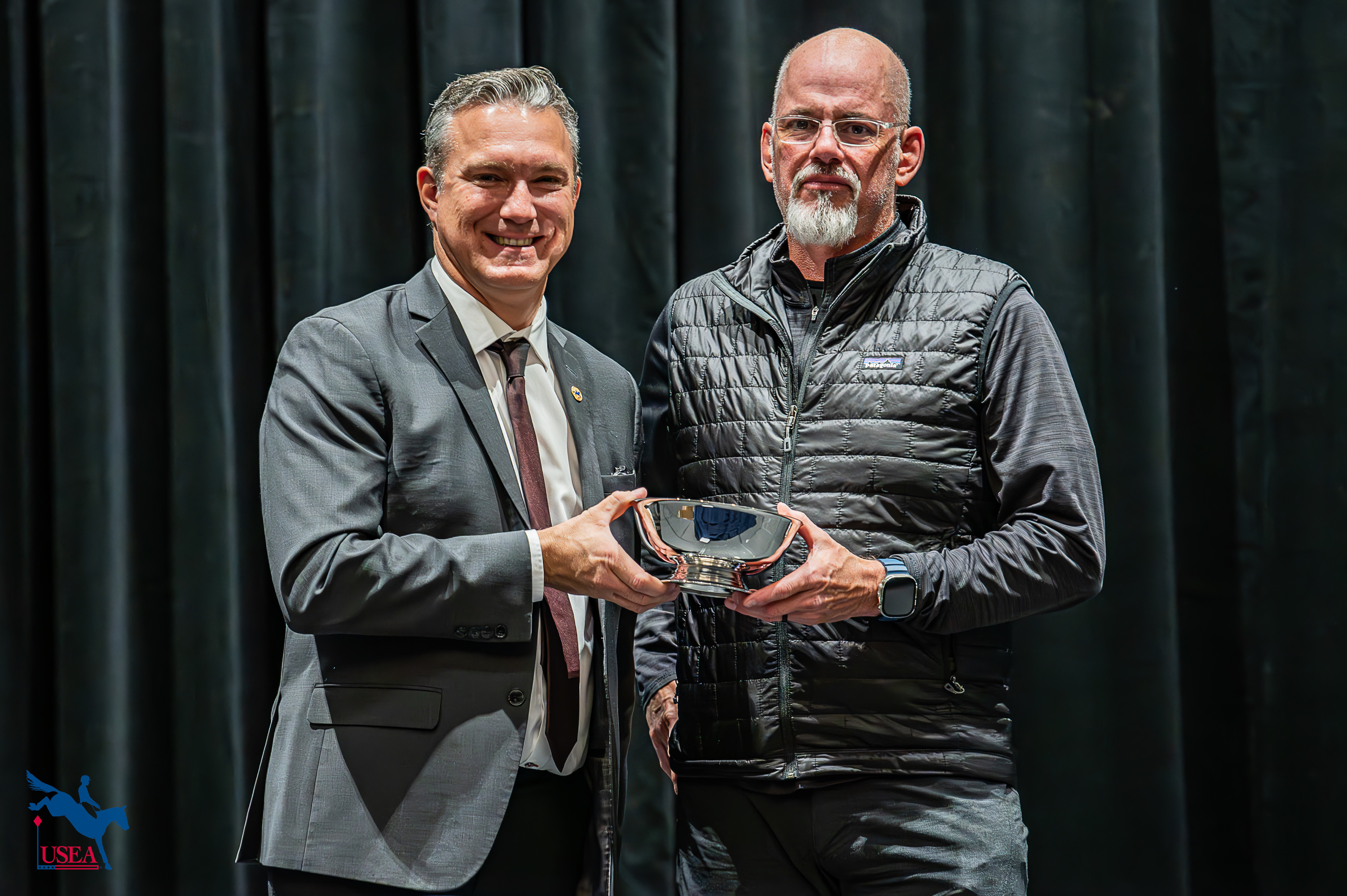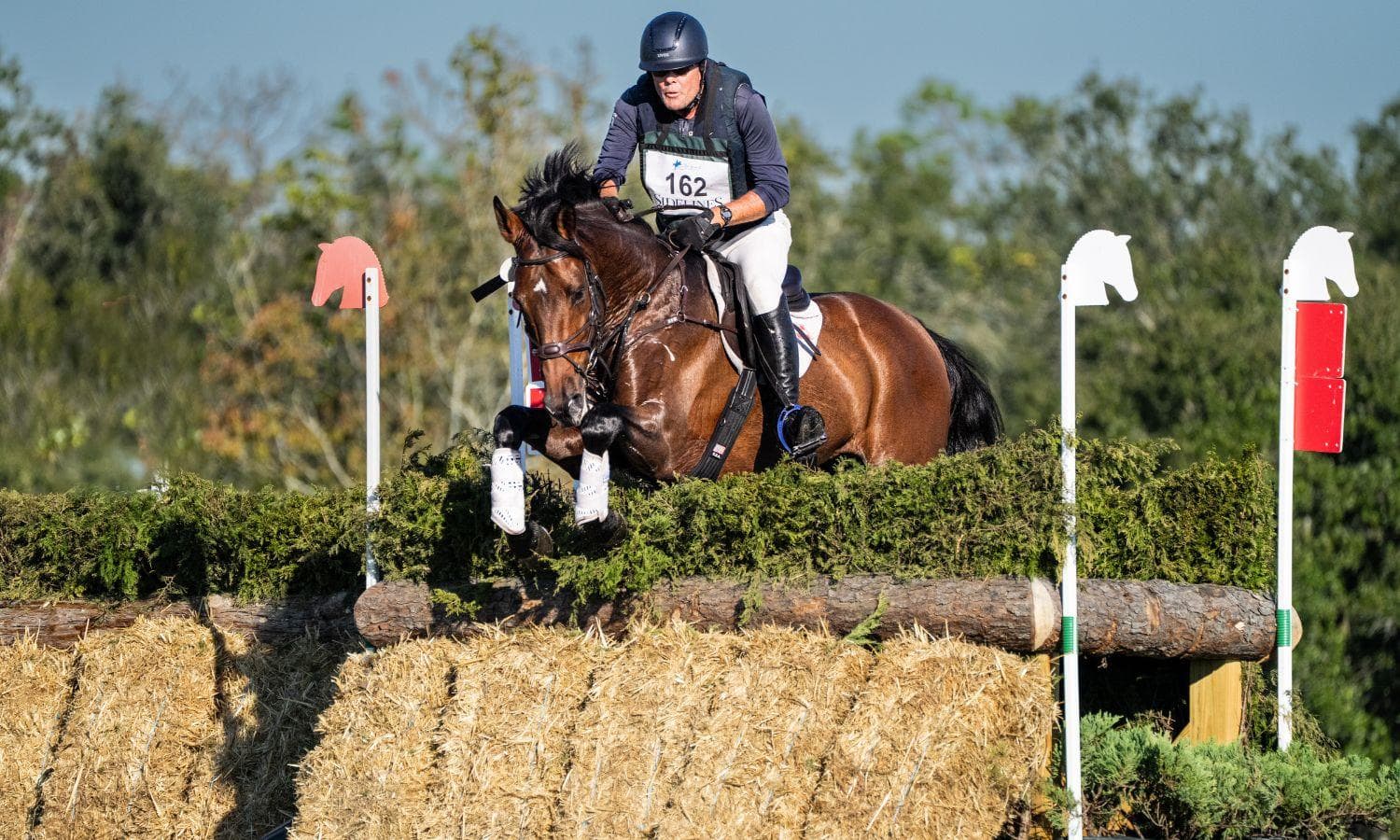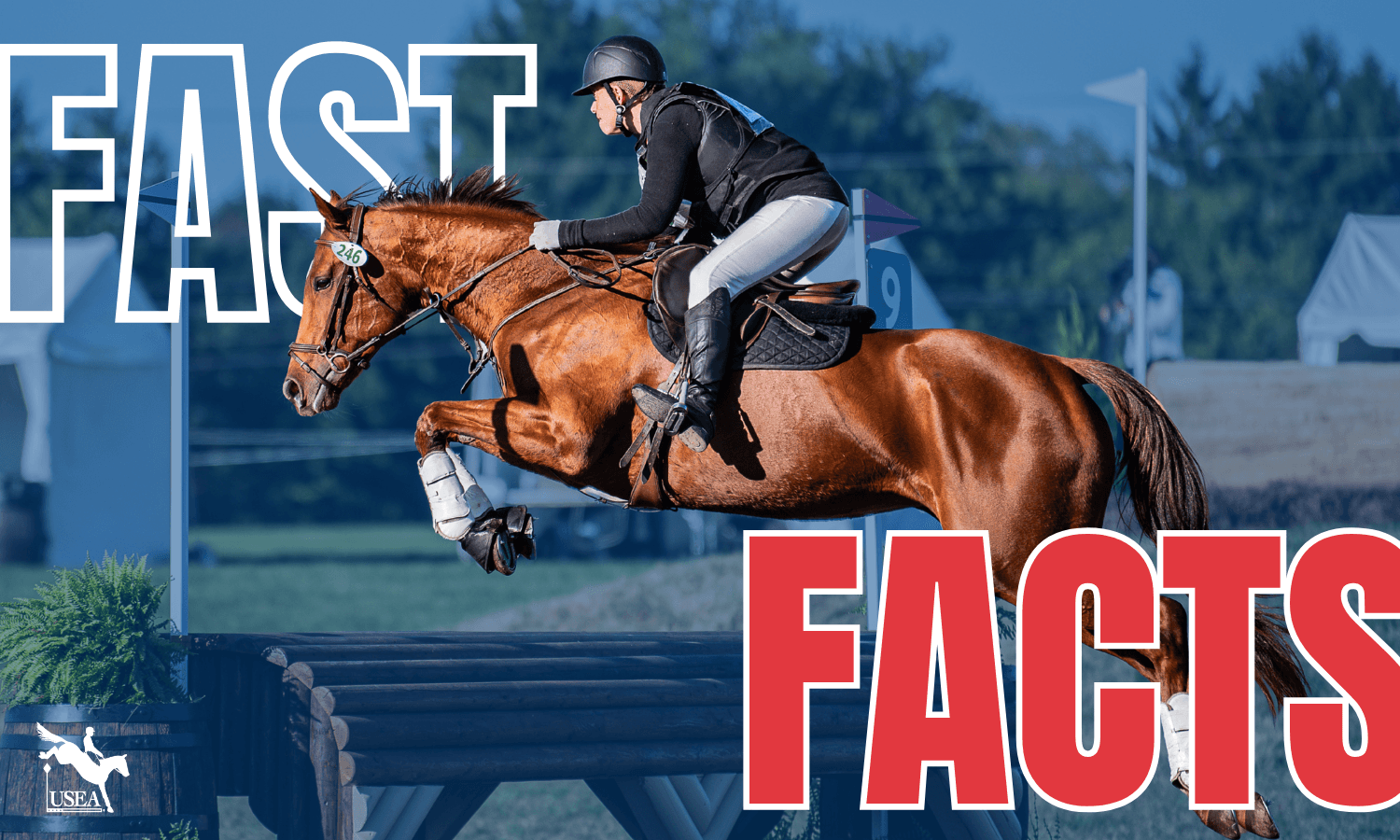The VIP Volunteer: Safety is Top Priority for USEA Governor’s Cup Winner Brian Murphy

Area X may not be known as a hot spot for eventing—but there’s more than enough action to keep volunteer Brian Murphy busy. Murphy first started volunteering after he needed something to do while he supported his wife when she competed on the weekends. Now, after putting in 60 volunteer hours in 2024 and earning the Area X Volunteer Incentive Program (VIP) Volunteer of the Year award, he’s busier than his wife, Christie Murphy, at most horse trials.
“I'm a lot more busy at these shows than my wife now,” Brian chuckled. “We get to the shows a day early, and, as the safety coordinator, I start working with the organizers, and I coordinate all the activities with the EMTs and the paramedics that are on site during the events. I'm working with course designers to just validate that the courses appear safe and that I'm not seeing anything that would concern me.”
As safety coordinator, Brian has unique responsibilities at these events and is often first on scene after a fall, thanks to his trusty four-wheeler. “I just like being around the community and the people and, you know, being a part of the shows is fun as well, just seeing everyone compete,” Brian said. “Probably the one thing I like the most is working with the young kids. When they come off their horse and they're upset, and just being able to be there for them and make sure they're OK, and then encourage them to get back on that horse and keep going.”
While Brian doesn’t ride often, volunteering at horse trials is nostalgic all the same. “[Volunteering] allows me to be around something that I enjoyed a lot as a kid,” Brian said. “When I was a young kid, I used to spend my summer vacations helping my grandfather run his very large ranch in Central Oregon. So, I was around horses a lot as a kid. My grandfather was also the regional rodeo announcer for all the rodeos in Oregon and Washington, and so on the weekends I would always travel to rodeos with him.”
Brian says Christie is really the eventer in the family. “She won the Area X Championships [at Novice] last year. She's doing amazing,” Brian said. “I keep telling her, you know you're going to age out of this sport before you know it. But I think as long as she can walk, she'll be riding and competing.”
The couple caravans to competitions many weekends out of the year, often traveling two to three hours to events. “We take two rigs. We've got my wife's big truck with a big living quarters trailer, and then I take my truck with a flatbed trailer with my four-by-four on it—my UTV.”

Traveling often to events in Arizona, Brian has to think of safety concerns in a variety of environments, from desert heat to pine forests. “Especially on cross-country for the Flagstaff shows, the Coconino shows, the cross-country courses are in the pine trees. So, I always check to make sure there are no pine tree branches in the way of the riders and jumps aren't too close to large pine trees; things like that. I make sure that I understand the courses pretty intimately on cross-country, just in case we have to roll the ambulance out on course to deal with a rider who's had a serious fall.”
While he enjoys all of the venues he volunteers at, Brian says his favorite would have to be the home of the Southern Arizona Eventing Association events, a newly expanded facility in Tucson. “I definitely love the setup in Tucson. There's three of them a year, I believe, and they’re fairly new. They just started doing shows in Tucson maybe five years ago, and they've been building a brand new cross-country facility down there. It's run by a non-profit organization that they formed just to support the sport down there. And the folks that are on the board of that non-profit and run the shows are just great people. They've really raised the bar on how to run shows.”
While Brian was familiar with eventing before he started volunteering, course designer James Atkinson acted as his mentor as he stepped into the role of safety coordinator. “James Atkinson is a former rider with the Canadian national team and just a great guy,” Brian said. “He and I became friends just because of going to shows and getting to know him. When they asked me to volunteer to be the safety coordinator, he jumped right in and was right there to kind of coach me through the first couple shows. He continues to be a great partner when we're working together at the shows.”
Brian has found a meaningful community through his volunteer work. “I've certainly made friends with a lot more people than I probably would have ever expected if I hadn't been involved like I am,” he said. “The community at large in Area X is not huge. Eventing out here, it's not one of the larger areas, so it's a pretty tight-knit community. Everybody kind of knows everybody.”

While Christie knew Brian was going to be awarded the Governor’s Cup at the 2024 USEA Annual Meeting & Convention in Seattle, Washington, in December, he had no idea until his name was called to receive the award.
“We were sitting at lunch on the second day and right after lunch, they started giving out a bunch of awards,” Brian said. “I had no idea that I was going to win anything. I was getting a little bored and like I said, I can't sit still. So, I was kind of looking at my phone, checking on work stuff under the table. And they were going through all the awards. The announcer says, ‘The winner of the Governor’s Cup is Brian Murray.’ She pronounced my last name wrong. And I kind of looked up, and I said, ‘Oh, there must be somebody with a very close name to me in the room.’ My wife looked at me and said, ‘Brian, that's you. They're calling you!’ And I'm like, ‘What?’ And the announcer corrected herself, ‘I'm sorry, it's Brian Murphy.’ ”
“I was surprised and a bit embarrassed, to be honest with you,” Brian continued. “I had to walk up on stage, but certainly appreciate them nominating me, and certainly appreciate the recognition of all the work I've put in. It was definitely a big surprise.”
The USEA Governor’s Cup is awarded to volunteers whose services have contributed significantly to the sport. After spending the last eight years dedicating himself to keeping riders of all ages safe while they gallop between the ropes, Brian’s award is definitely well-earned.
About the USEA Volunteer Incentive Program
Volunteers are the lifeblood of our sport—the unsung heroes, and the people who make it possible to keep eventing alive. In efforts to recognize the dedication, commitment, and hard work that volunteers put into eventing, the USEA formed the Volunteer Incentive Program (VIP) in 2015. In 2017, an online management portal was designed for volunteers, organizers, and volunteer coordinators at EventingVolunteers.com, which is also available as an app for iOS and Android.
Volunteer incentives include national and area recognition, year-end awards, a top-10 USEA Volunteer leaderboard, and a Volunteer of the Year award which is given to the volunteer who accumulates the most volunteer hours on EventingVolunteers.com at recognized events throughout the USEA competition year. Click here to learn more about the USEA Volunteer Incentive Program.
The USEA would like to thank Mrs. Pastures Cookies for Horses and Horse Illustrated for their support of the Volunteer Incentive Program.















